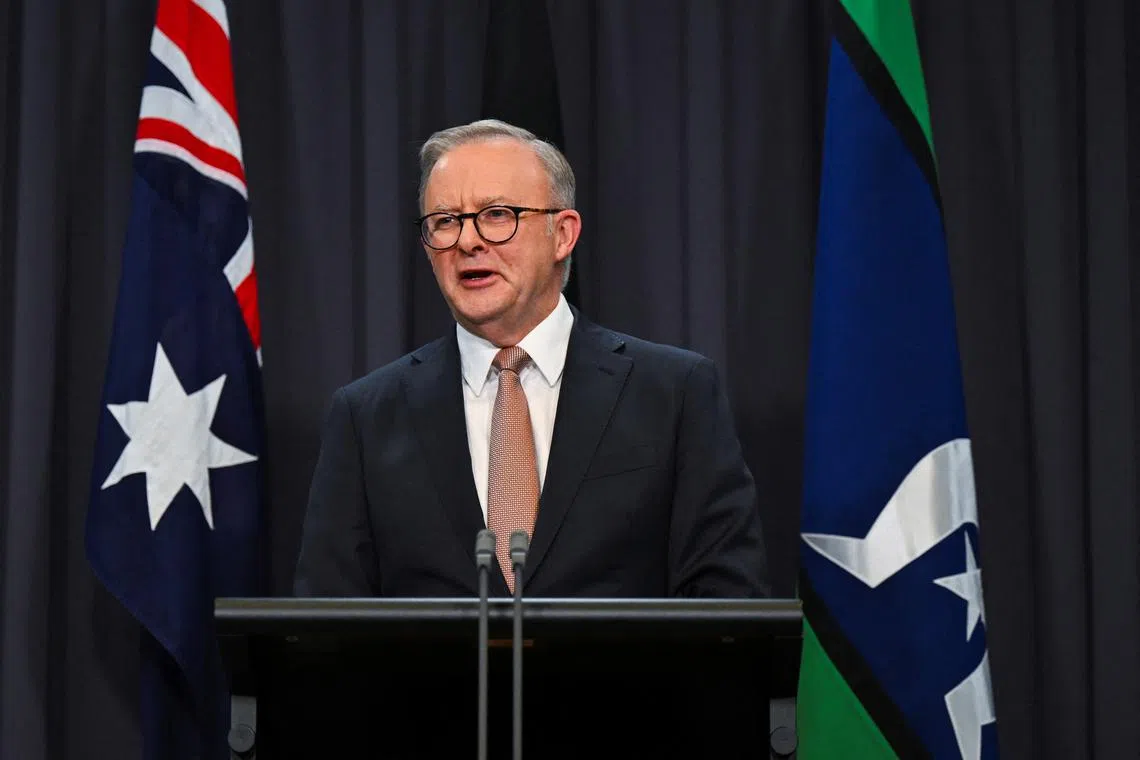More voters eye opposition win in Australian election as PM’s ratings slump, poll shows
Sign up now: Get insights on Asia's fast-moving developments

Mr Albanese's approval ratings slumped six points to -20, his worst as prime minister and lower than that of opposition leader Peter Dutton.
PHOTO: REUTERS
Follow topic:
SYDNEY - Australian Prime Minister Anthony Albanese's approval fell to its lowest level since the 2022 election, while more voters for the first time expected the conservative opposition coalition to win the next election due by May, a widely watched poll showed.
A Newspoll survey conducted for The Australian newspaper on Jan 27 showed the Liberal-National coalition ahead of the Labor government 51-49 on a two-party preferred basis under Australia's preferential voting system, where votes from minor parties are redistributed until a winner is elected.
The numbers were tied at 50-50 in the previous poll in December.
Mr Albanese's approval ratings slumped six points to -20, his worst as prime minister and lower than that of opposition leader Peter Dutton.
On the preferred prime minister index, Mr Albanese fell 1 point to 44 per cent, while Mr Dutton rose 3 points to 41 per cent.
Some 53 per cent of voters predict the opposition coalition to win the election in its own right or in a minority government, compared with 47 per cent for Labor, marking a reversal of sentiment from six months ago when Labor was tipped to retain power, the poll showed.
The latest polling is a blow to the Albanese-led Labor government as it struggles to lift support despite a slew of measures aimed to please families and businesses grappling with high living costs and boost jobs.
Australia's core inflation slowed in November, keeping the door open to a rate cut by the Reserve Bank of Australia (RBA) when it meets in February, though the inflation figures for December due on Dec 29 will give markets more clarity.
The RBA has held its policy restrictive keeping rates steady for a year at 4.35 per cent as it looks to bring inflation to its target band of 2 per cent to 3 per cent while preserving employment gains.
The central bank unexpectedly turned dovish in December as economic growth has stayed anaemic. REUTERS

